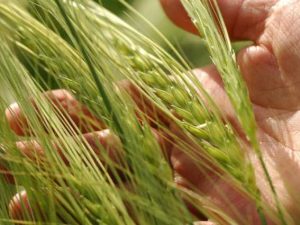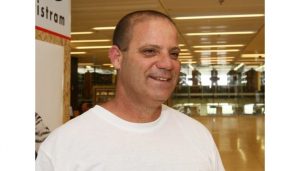
Are wild wheat genes the key to protection against insects?
As global temperatures rise, insect populations have expanded to new regions and reproduce more rapidly – making them a serious threat to cultivated wheat. A

The major oil spill off the coast of Israel is being called the worst ecological disaster in the country’s history. Soon after the tar was first noticed on Israel’s beaches, a number of researchers and students from UofH quickly mobilized to assist in the emergency clean-up operation and removed the tar by hand.
National media outlets interviewed several marine researchers from The Leon H. Charney School of Marine Sciences on the disaster, including Prof. Ilana Berman-Frank (Director of the School) who spoke to Israel21C about the mounting urgency to invest in early detection and monitoring systems such as satellites and remote sensing gliders and buoys. She warns that, “Once the oil has reached the shore, dealing with the damage is too late. And unless we act quickly this will happen again.” Prof. Rear Admiral (Ret.) Shaul Chorev, (Head of The Maritime Policy & Strategy Research Center and The Ezri Center for Iran & Persian Gulf Studies) told The NY Times that, “In Israel, we have maritime domain blindness… Our activities are always focused on foiling terrorists activities, but that’s not the whole picture of security in the sea.”

As global temperatures rise, insect populations have expanded to new regions and reproduce more rapidly – making them a serious threat to cultivated wheat. A

In the News Congratulations to Prof. Guy Bar-Oz (School of Archaeology and Maritime Cultures) on being awarded a prestigious European Research Council grant for his research

Prof. Meir Hemmo (Vice Rector) was recently inducted into The European Academy of Sciences. A professor of philosophy at the University of Haifa, Hemmo has published extensively
© University of Haifa Division of External Relations